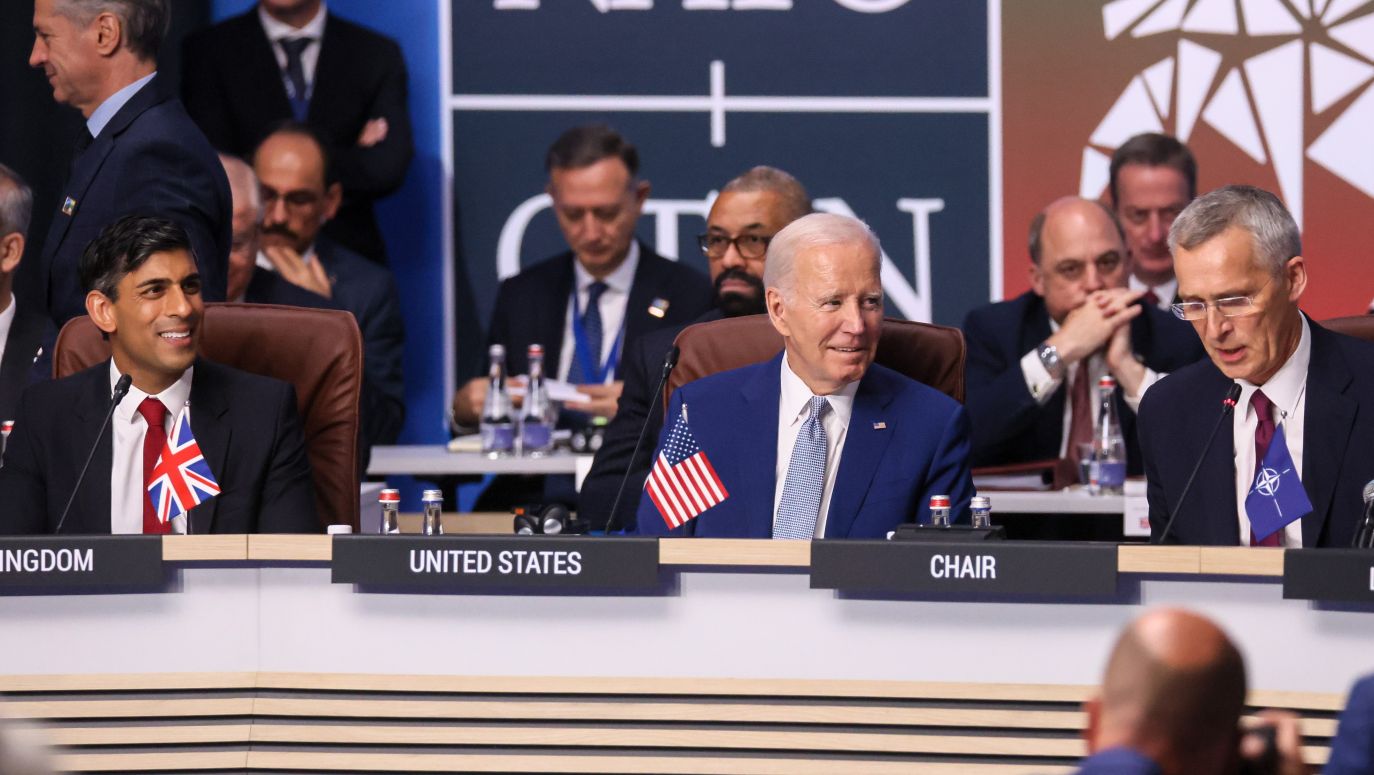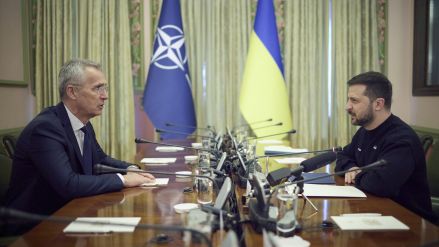The authors of the "Israeli" concept, the one Joe Biden seems to have finally accepted, point out that Israel has been supported for several decades by the United States -- politically, financially and materially -- without ever having been in a formal alliance with either Washington or NATO, and never having shown any intention of applying for such membership. Possessing an army with high morale, equipped with the most modern weapons (American and its own), Israel is capable of ensuring and securing its sovereignty on its own.
According to US political scientists and political practitioners, Ukraine having similar characteristics, it suffices to establish the same kind of relationship with it as with Israel, whereby the situation will be resolved, leaving the issue of NATO membership relegated to the background as of secondary importance. On day two of the summit, Politico published an article by two US analysts who went even further in developing this concept. Their claim was that Ukraine should receive neither security guarantees nor assurances of prospective NATO membership; that being the recipient of serious arms deliveries and being awarded the status of a neutral country would make it safe, while reassuring Russia that it would not be attacked by Kyiv... I cite this interpretive view to show how far certain American academic analysts can go in their naivity.
 SIGN UP TO OUR PAGE
SIGN UP TO OUR PAGE 
President Zelensky does not seem to have been persuaded by the "Israeli" concept. At the end of the summit he declared that, satisfied though he was with the outcome, "it would have been perfect" had Ukraine actually been invited to join the Alliance. He called anew for the West not to offer his country security guarantees in place of outright membership. The point is that currently there is neither talk of membership nor guarantees, because the G-7's commitment (portentiously referred to as "guarantees") amounts to little more than the provision of weapons and economic aid, lacking any commitment to defence.
Trump's Shadow
This entire festival of big words, smiles and back-slapping took place in the shadow of the upcoming US presidential election, which Donald Trump or any other more-or-less isolationist Republican candidate could win. Nothing better illustrates that anomaly than the fact that just as radical supporters of Ukraine in Vilnius were demonstrating their disappointment at the summit’s failure to invite Kyiv to join the Alliance, in Washington, Republican Marjorie Taylor Greene was tabling amendments in the US Congress to laws in a bid to have the US pull out of NATO and to ban deliveries of the F-16 aircraft to the very state now fighting with Russia.
Interestingly, in support of her demand that the US should leave NATO, Greene pointed out how her country contributes 4 percent of its GDP to the army, whereas the equivalent from Germany, Europe's largest economy, is only slightly above 1 percent, in effect making American taxpayers pay for the security of German taxpayers. This brings to mind Trump's meeting with Chancellor Merkel in 2018, when he said more or less the same thing, with the added accusation that Berlin was financing Russian armaments through the construction of Nord Stream-2 and its purchases of Russian gas.
Of course, Greene, an ardent supporter of Donald Trump and conspiracy theories in general, does not rank in the first league of American politicians. Indeed, even in the Republican-dominated Congress, she is in the minority, so her amendments have no chance of being accepted. However, her demand gives us a stark glimpse of a trend that is gaining increasing traction in US politics, one that no one will be able to ignore during the election.
Supporters of this trend maintain that the US has a primary responsibility to look after its own interests ("America First!"). This means firstly in the country, and secondly in the Indo-Pacific region. An important element of this mindset is fear of entering into an open conflict with a nuclear power like Russia. Proponents even talk about the need to "stop the march towards World War III", something they believe the escalation of Ukraine's defense could lead to.
Of course, the Russians are adept at stoking such fears. The latest example can be found in the June article by Sergei Karaganov (the political scientist and former adviser to presidents Boris Yeltsin and Vladimir Putin) about a preventive nuclear strike on those European countries that support Ukraine -- to "sober them up", as he put it. It can be assumed that the Russians are bluffing, since the nuclear arsenal is the only real military resource they have left, but the problem is that there is no way to check this bluff.
Just how much of an isolationist stance Donald Trump or whoever the Republican presidential candidate happens to be adopts is unknown once the election campaign is in full swing. What is undisputed, however, is that a return to the rhetoric of "America First!" will mean that President Biden, the most likely Democratic candidate, will have to moderate his words and actions, making it all the more difficult for him to oppose theses rooted in the primacy of American interests.
In short, the defense of Taiwan and the related defense of semiconductor supply chains, by any criteria (whether Democratic or Republican), are more important for American interests than the defense of Ukraine, which can be left to those most interested, i.e. Europeans. Of course, the risk of nuclear war has to be considered by any serious presidential candidate. Biden's rhetoric, therefore, while flowery and full of assurances of friendship, is carefully measured and does not go too far, as though anticipating an election battle with an opponent who will play precisely these cards. Biden’s actions are similarly measured.
China's concern
Paradoxically, the country that seems to be most worried about the outcome of the Vilnius meeting, is China, not Russia, which expected nothing good to emerge from the NATO summit. The prospect of unifying Japan, South Korea and Australia in some sort of association with NATO is viewed as a threat by China. In the official language of Chinese propagandists, this is known as "NATO+", meaning the institutionalization of cooperation.
In the text published by "Global Times" (an English-language magazine associated with the Chinese Communist Party), one can discern a certain amount of resentment about Russia and its adventurous policy towards Ukraine. This has given the Alliance, already on the verge of "brain death" (as France's President Emmanuel Macron once put it), cause to revitalize, contributing to the decision that it should expand and even possibly extend its influence to the Asia-Pacific region. “If NATO does not rein in these tendencies and strengthens its actions, it will face more serious consequences,” the authors of the "Global Times" editorial warned.
So what will the consequences be? It can be assumed that rather than being military, they will be commercial, yet so serious that Macron (who this past April was given an imperial-like reception in Beijing and Guangzhou) felt obliged to try to soften the summit communiqué's language regarding China. This is where the most important fight will take place. As former (and possibly future) State Department official Richard Fontaine wrote in the prestigious American bimonthly "Foreign Affairs" this week, the world should abandon the belief that in the future it will be possible to live in neutrality when it comes to Beijing's and Washington's interests. It appears that this will also apply to NATO members and the Alliance itself. The official summit communiqué refers to Chinese policies that "endanger our security and values" while proposing "constructive engagement."


 SIGN UP TO OUR PAGE
SIGN UP TO OUR PAGE 





